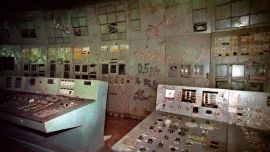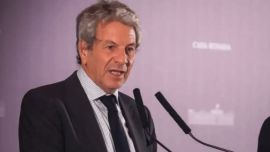Suffering the impact a deep economic crisis and with a healthy dose of scepticism and frustration, Argentines began casting their votes this morning in crucial primary elections.
The PASO primaries will define the candidates for the October presidential elections, the first choice in selecting President Alberto Fernández's successor. The Peronist leader has chosen not to run for re-election.
The ruling Unión por la Patria coalition has two hopefuls battling it out for the right to be its presidential candidate, with Economy Minister Sergio Massa likely to emerge as the nominee.
Polling centres opened at 8am local time and will remain open until 6pm local time.
Massa, 51, has good relations with Argentina's business, labour diplomatic sectors. He is the current leader of talks with the International Monetary Fund over the country's US$44-billion debt programme.
Juan Grabois, a leader of social movements with strong ties to Pope Francis, is challenging him for the nomination, representing the ruling coalition's left wing. It is his first electoral run.
The opposition Juntos por el Cambio is also set to define its presidential candidate in what is likely to be a more competitive primary. Buenos Aires City Mayor Horacio Rodríguez Larreta, 57, and former security minister Patricia Bullrich, 67, represent the more moderate and hard-line sectors of its leadership. Both politicians hail from former president Mauricio Macri's PRO party.
"It is an open-ended election and the result will define the new electoral scenario. Rodríguez Larreta attracts a non-politicised voter, Patricia Bullrich is the opposite," said political scientist Carlos Fara.
After years of 'la grieta' – Argentina's stark political polarisation – this is the first election in some years that will not feature either Marci or former president Cristina Fernández de Kirchner on the ticket, the guardians of the opposition and ruling alliances respectively.
"I think it's time to try someone new," said Carlos Reyes, a 66-year-old electrician.
A new phenomenon in domestic politics, libertarian lawmaker Javier Milei is also drawing attention. The share of the vote he wins in this year's primaries will reveal the strength of the two main coalitions.
Milei, a 52-year-old economist who believes he can qualify the run-off in October presidential ballot, has found support with his aggressive discourse against Argentina's "political caste."
In the 2021 legislative elections, his first run for office, Milei's La Libertad Avanza party was the third most-voted-for party in Buenos Aires City, taking 17 percent of the vote.
For some analysts, the frustration of the electorate with both the Juntos por el Cambio and Peronist governments of recent years makes this Argentina's most uncertain election of the democratic era.
Despite the country's familiarity with economic crises, Argentines are currently suffering from some of worst indicators in the last 30 years: year-on-year inflation is running at 115 percent, one of the highest in the world, while poverty reaches 40 percent of the 45-million population. The peso is devaluing at an ever faster rate (falling 17 percent in the last month).
"I want a government that will restore the economy, but I know it will take time. We have a lot of debts and it is not going to be easy to recover everything that has been lost under other governments. I want a government that listens to us young people, not as propaganda and then that's it. We are not stupid and we also vote," said Agustina Rossi, a 16-year-old student casting her vote for the first time this year.
Argentina is the third-largest economy in Latin America and a major world food exporter. At the same time, it has to honour its debt agreement with the International Monetary Fund and trim spsending.
"Argentina has been in economic decline for more than 10 years, in an ever worsening crisis. There is a growing disaffection of the electorate in a country that had clear political identities," said Juan Negri, a professor of Political Science at the Universidad Torcuato di Tella.
"This year's election is a key election because of the voters' need for change, but also because of the politicians' need for change," he said.
– TIMES/AFP

























Comments